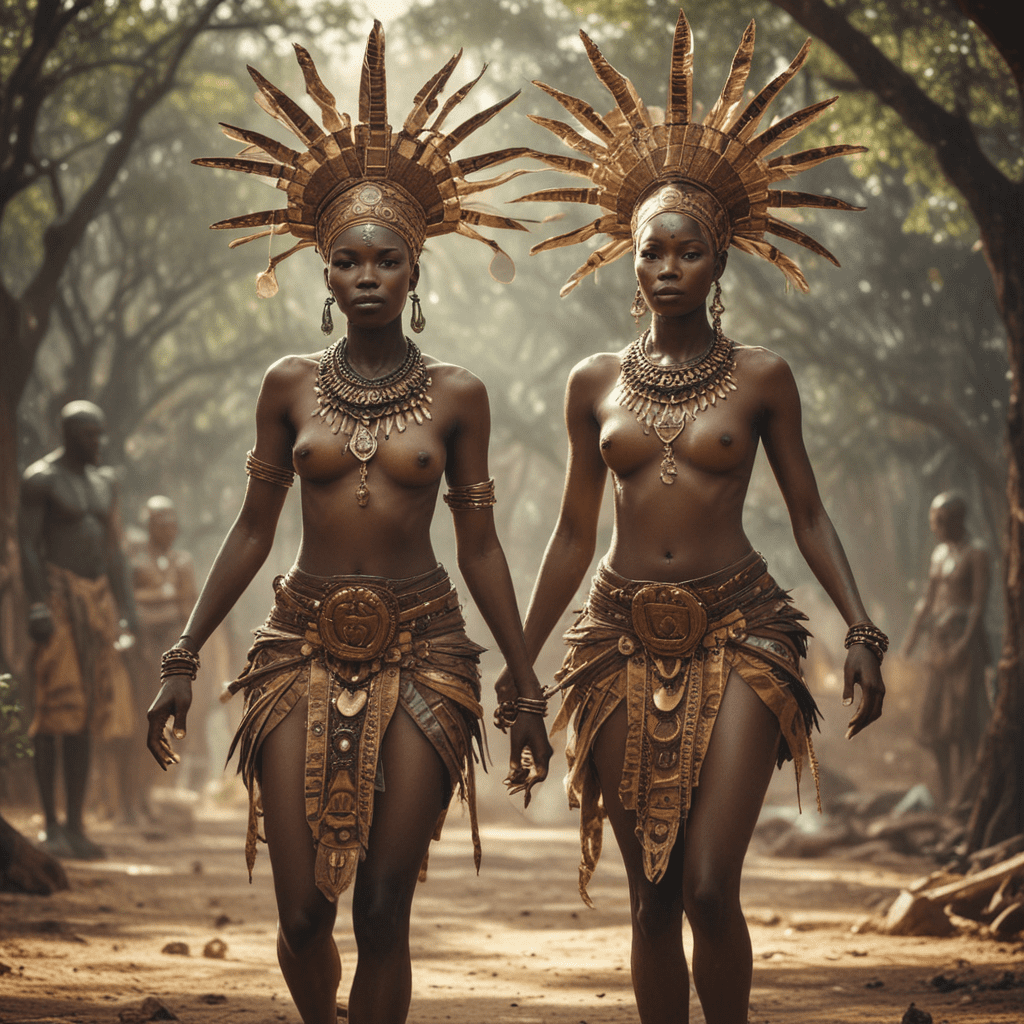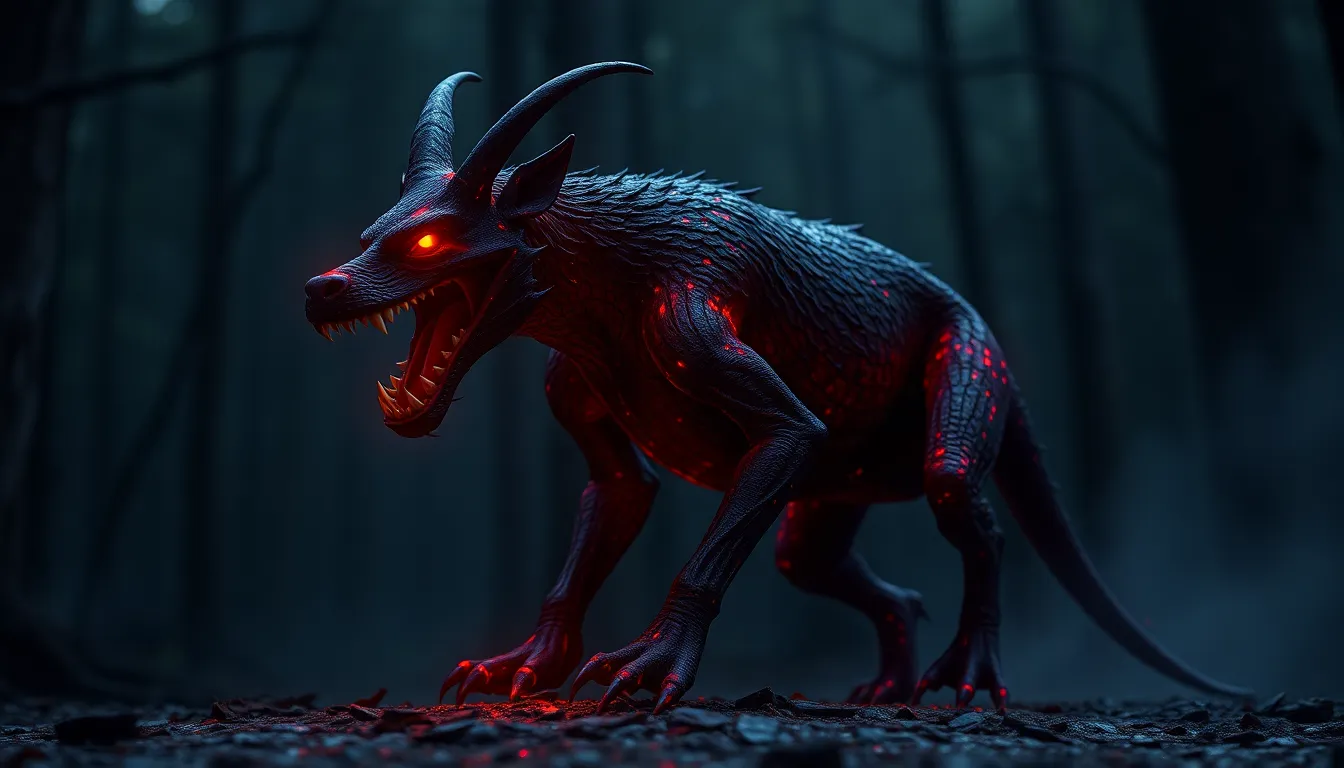Supernatural Beings in African Folklore
Africa's rich oral traditions are filled with tales of supernatural beings, mythical creatures that embody the forces of nature, influence human affairs, and shape cultural beliefs. These enigmatic entities occupy a central place in African folklore, serving as sources of wisdom, cautionary tales, and spiritual guidance. Here's an exploration of five prominent supernatural beings from the vast tapestry of African folklore:
Anansi the Spider
Anansi, a cunning and mischievous spider, is a central figure in West African folklore. Often depicted as a trickster, Anansi is known for his wit, wisdom, and ability to outsmart even the most powerful of beings. Tales of Anansi's adventures teach lessons about morality, resilience, and the importance of cunning. He is also credited with bringing stories to the world, using his web to weave intricate narratives that entertain and educate.
Abiku
Abiku, a mischievous spirit child in Yoruba mythology, is believed to be a restless soul that repeatedly dies and returns to the world. Often associated with misfortune, Abiku children are said to cause illness and death within their families. To appease the spirit and prevent its return, elaborate rituals and sacrifices are performed. Tales of Abiku explore the themes of mortality, loss, and the enduring bonds between parents and children.
Asase Ya
Asase Ya, the Earth Goddess in Akan mythology, is revered as the mother of all living things. Believed to be the embodiment of the Earth, Asase Ya is responsible for fertility, growth, and the sustenance of life. Her wrath is feared, as earthquakes and other natural disasters are attributed to her displeasure. Offerings and rituals are made to Asase Ya to ensure her blessings and the prosperity of the land.
Mami Wata
Mami Wata, a powerful water spirit in West African folklore, is often depicted as a beautiful woman with long flowing hair and a fishtail. Associated with both danger and allure, Mami Wata is said to bring fortune to those who favor her and misfortune to those who cross her path. Tales of Mami Wata explore themes of temptation, wealth, and the hidden powers that lie beneath the surface of waters.
Obatala
Obatala, the creator god in Yoruba mythology, is considered the father of all orishas (deities). Known for his wisdom, Obatala is said to have molded humans out of clay and given them the gift of language. He is also associated with purity and healing. Stories of Obatala emphasize the importance of creation, order, and the divine nature of humanity.
6. Sango: Thunder God and Protector Warrior
Sango, the Yoruba god of thunder, lightning, and fertility, is a powerful and revered deity. Depicted as a warrior wielding a double-headed axe, Sango is feared for his unpredictable temper and ability to unleash destructive storms. Yet, he is also a protector, defending his worshippers from enemies and malevolent forces. Tales of Sango's exploits highlight the importance of strength, courage, and the balance between destructive and life-giving powers.
7. Esu: Messenger of the Gods and Trickster
Esu, the messenger of the gods in Yoruba mythology, is a complex and enigmatic figure. A master of deception and illusion, Esu is known for his cunning and his ability to disrupt the plans of both gods and mortals. Yet, he is also a trickster, using his wit to expose hypocrisy and bring about justice. Tales of Esu's escapades explore the themes of communication, chaos, and the delicate balance between order and disorder.
8. Ayelala: Female Spirit Associated with Rain and Fertility
Ayelala, a female spirit in Yoruba mythology, is associated with rain, fertility, and the abundance of nature. As the wife of the thunder god Sango, she brings forth life-giving rain and ensures the prosperity of the land. Tales of Ayelala emphasize the importance of the feminine principle, the interconnectedness of all living things, and the cyclical nature of birth, death, and rebirth.
9. Oya: Wind Goddess and Protectress of Women
Oya, the Yoruba goddess of wind, storms, and the Niger River, is a powerful and independent deity. Known as a warrior and protectress, Oya fiercely defends her worshippers and ensures the safety of women. As the ruler of the marketplace, she is also associated with trade and commerce. Tales of Oya's strength and determination inspire women to embrace their own power and to fight for what they believe in.
10. Oggun: God of War and Iron.
Oggun, the Yoruba god of war, iron, and hunting, is a powerful and virile deity. Depicted as a blacksmith, Oggun is the patron of warriors, hunters, and all who work with metal. His strength and bravery are legendary, and he is invoked by those seeking victory, protection, and success in battle. Tales of Oggun's exploits celebrate the power of human effort, the importance of skill and craftsmanship, and the enduring struggle against adversity.
FAQs
Q: What is the most common type of supernatural being in African folklore?
A: Tricksters, such as Anansi the Spider, are common figures in African folklore.
Q: Are supernatural beings in African folklore always harmful?
A: No, many supernatural beings are protectors or bringers of fortune, such as Asase Ya and Mami Wata.
Q: What is the significance of storytelling in African folklore?
A: Storytelling is an essential part of African culture, and tales of supernatural beings are used to teach moral lessons, explain the origins of the world, and entertain audiences.




